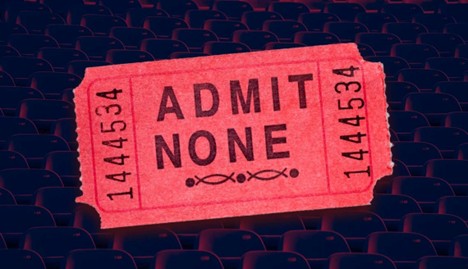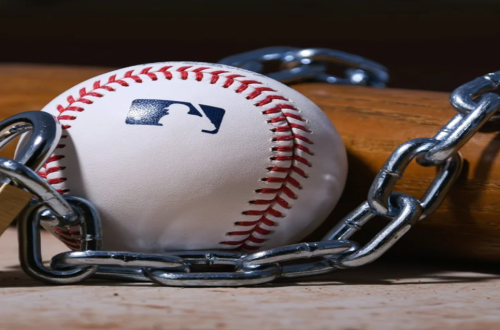By: Peter Carlisle
SELJ is honored to feature Judicial Alchemy: How Cascading Procedural Failures Upended The Jordan Chiles Arbitration And Rewrote Olympic History written by Peter Carlisle in Volume 14, Issue 2. Carlisle is a long-time athlete rights advocate who has represented Olympic athletes for more than 25 years. He is the Managing Director of Octagon’s Olympics & Action Sports Division, a lawyer, and a former adjunct professor of sports law. The author does not represent Jordan Chiles, or any parties involved in the arbitration discussed herein. The opinions expressed herein are those of the author and do not necessarily represent the views of the company, clients, or any other individuals. The author is especially grateful to Drew Johnson for his thoughtful input and support in the preparation of this article.
Below is the article’s Introduction, click here to continue reading the full article. Hard copies of the entire Issue may be purchased via Amazon.
Introduction
At the Olympic Games Paris 2024, Jordan Chiles won the bronze medal in the Artistic Gymnastics Women’s Floor Exercise Final after officials corrected a judging error in response to an inquiry from her coach. The inquiry questioned the difficulty score of her routine, and the officials’ review confirmed the error, raising Chiles’ score and altering the standings. Five days later, after the world had celebrated her medal-winning performance and Chiles had returned home to a hero’s welcome, she learned it was all a big mistake. The Romanian Federation (FRG)[1] had challenged the final scoring by appealing to the Court of Arbitration for Sport (CAS)[2] which determined Chiles’ coach had submitted the verbal inquiry four seconds late. CAS issued a decision (Ruling) instructing the International Gymnastics Federation (FIG)[3] to lower Chiles’ score and recommending the International Olympic Committee (IOC)[4] “reallocate” her bronze medal to the Romanian gymnast, Ana Maria Barbosu, who had been in third place prior to the inquiry process.[5] Chiles has since appealed the Ruling to the Swiss Federal Supreme Court (SFT).[6]
The Chiles case raises an important question: How could such a scenario unfold at the Olympic Games, where well-established rules are in place to ensure fairness and finality? In fact, FIG rules address every aspect of gymnastics competitions, including the selection and training of officials, the judging process, and the review and appeal of scoring. These rules establish an in-competition review process that grants coaches a limited right to challenge certain judging decisions within a specified timeframe after a gymnast’s score is posted. Upon accepting such an inquiry, a Superior Jury[7]—composed of three senior-ranking FIG officials—conducts a video review, determines whether a judging error occurred, and renders a final, unappealable decision. In the Chiles case, FIG conducted this process entirely in accordance with its rules, and it is undisputed that the revised scoring accurately reflected the gymnasts’ performances. This begs the question: What justified CAS’s decision to override FIG’s authority and alter the final Olympic results?
To fully grasp the implications of CAS’s arbitration of the Chiles case, it is important to first examine the framework governing the Olympic dispute resolution process and CAS’s unique role within it. Dispute resolution is central to the Olympic Movement, with all participants required to submit to the exclusive jurisdiction of CAS. Athletes must agree that CAS decisions are “final, binding, and non-appealable,” except on limited procedural grounds subject to review by the SFT.[8] By waiving the right to litigate disputes in any other forum, athletes entrust CAS with significant authority over their rights.
Similarly, Olympic organizations must depend exclusively on CAS, with the Olympic Charter providing that disputes “shall be submitted exclusively to the Court of Arbitration for Sport.”[9]Arbitrations at the Games are adjudicated by panels of CAS arbitrators “pursuant to the Olympic Charter, the applicable regulations, general principles of law and the rules of law,”[10]and are governed by Chapter 12 of the Swiss Act on Private International Law (PILA).[11]
For disputes arising at the Olympics, CAS establishes an on-site Ad Hoc Division[12] (AHD) “to provide in the interests of the athletes and of sport, the resolution by arbitration of any disputes.”[13] CAS devised a set of rules specifically for the AHD (CAS Arbitration Rules for the Olympic Games) to provide structure to its swift proceedings and safeguard the rights of all parties to participate and contribute to the resolution process (Ad Hoc Rules). The Ad Hoc Rules require arbitrators to “give a decision within 24 hours of the lodging of the application,”though extensions are permitted in exceptional cases.[14] For more complex disputes, they allow referral to the CAS Appeals Division for adjudication under the Code of Sports-related Arbitration (CAS Code), which provides more time and structure and is not confined to the period of the Games.[15]
CAS decisions are reviewable only by the SFT on very limited bases, and they are rarely set aside. As a rule, those appealing a CAS decision are bound by the CAS panel’s findings of fact unless such facts were established through a violation of Article 190(2) of PILA. In addition, the SFT will only review the merits of an award if it is incompatible with public policy. Therefore, CAS enjoys an exceptional level of autonomy in adjudicating disputes. For Olympic athletes, who have no choice but to submit to CAS arbitrations to participate in the Games, the fair resolution of disputes requires the AHD and its arbitrators to get it right the first time.
Given the stakes, case management is crucial to the AHD’s dispute resolution process. From the outset of each case, the AHD must conform to its procedural rules to ensure that all parties fully understand the challenges and issues presented, can assemble relevant evidence, and are able to advance appropriate legal arguments. Additionally, the AHD must recognize and acknowledge unique circumstances where the expedited procedures of the Ad Hoc Rules are insufficient to support a fair adjudication.
To appreciate the unique circumstances of the Chiles case and the deficiencies of the Ruling requires a thorough review of the AHD’s adjudication—an inquiry the SFT is unlikely to undertake. Although Chiles has appealed the Ruling under PILA, the odds remain daunting: between 2020 and 2023, the SFT set aside only three of approximately 100 CAS awards.[16] This article examines the procedural anomalies in the Chiles case, the legal grounds on which her appeal rests, and the broader implications of the Ruling for Olympic dispute resolution and the integrity of the Movement itself.
Interested in reading more? Click here to access the full article.
[1] The national governing body for gymnastics in Romania, the Romanian Gymnastics Federation (FRG) is responsible for representing the interests of Romanian gymnasts and organizing gymnastics activities within the country.
[2] To participate in the Olympics, each athlete and organization must agree to resolve all disputes through the Court of Arbitration for Sport (CAS) which was established by the IOC and is headquartered in Switzerland. For most Olympic sports, disputes are adjudicated in Switzerland, according to the CAS Code of Rules (CAS Code) and Switzerland’s Private International Law Act (PILA).
For those subject to its jurisdiction in Olympic-related matters, CAS decisions are final and unappealable, except for limited grounds for appeal to the Swiss Federal Supreme Court (SFT). This exceptional autonomy, particularly in Olympic disputes, has led to criticism, as seen in the Chiles case.
[3] The International Gymnastics Federation, also known as the Fédération Internationale de Gymnastique, (FIG)is the global governing body for gymnastics. Headquartered in Switzerland, FIG sets competition rules, certifies judges, and organizes major gymnastics events, including the Olympics.
[4] Governed by the Olympic Charter, the International Olympic Committee (IOC) owns and controls the Olympics, delegating authority to IFs and NOCs for sport-specific and country-specific operations. It selects host cities and oversees the Local Organizing Committee (LOCOG). The IOC sets general eligibility requirements for the Games, while IFs determine sport-specific qualifications. NOCs, in turn, rely on NGBs to manage athlete selection.
[5] For clarity, this paper distinguishes among three closely related elements of the CAS matter involving Jordan Chiles. The term “Arbitration” refers to the entire dispute resolution process before the CAS Ad Hoc Division. “Ruling” refers to CAS’s substantive decision to recommend reallocation of Chiles’ medal. “Written Decision” refers to the formal, reasoned opinion issued on August 14, 2024, which forms the basis of the SFT’s limited review.
[6] The Swiss Federal Supreme Court, also known as the Swiss Federal Tribunal (SFT) is Switzerland’s highest court and the only court to which CAS decisions may be appealed. The permissible grounds for appeal are set forth in Article 190(2) of Chapter 12 of the Swiss Act on Private International Law (PILA), which provides as follows:
An arbitral award may be set aside only:
- Where the sole member of the arbitral tribunal was improperly appointed or the arbitral tribunal improperly constituted;
- Where the arbitral tribunal wrongly accepted or declined jurisdiction;
- Where the arbitral tribunal ruled beyond the claims;
- Where the principle of equal treatment of the parties or their right to be heard in an adversary procedure were violated;
- Where the award is incompatible with public policy.
Bundesgesetz über das Internationale Privatrecht [Federal Act on Private International Law (PILA)] Dec. 18, 1987, SR 291, art. 190(2) (Switz.).
[7] A body of officials established under FIG Rules to oversee gymnastics competitions, address judging errors, and make final decisions on inquiries. In the Chiles case, the Superior Jury reviewed and corrected a judging error, raising her score to the third-place position. Its decisions are intended to be final and unappealable.
[8] Olympic Games Paris 2024, Conditions of Participation for NOC Delegation Members, Games of the XXXIII Olympiad Paris 2024 5 (2024) [hereinafter Conditions of Participation] (discussing Section 7: Arbitration).
[9] International Olympic Committee, Olympic Charter: In Force as From 23 July 2024 108 (2024) [hereinafter Olympic Charter] (discussing Rule 61: Dispute Resolution).
The Olympic Charter is the governing document of the Olympic Movement, outlining its principles, rules, and regulations. The Charter emphasizes the independence of IFs and their responsibility to govern their respective sports.
[10] Ct. Arb. for Sport, Arbitration Rules for the Olympic Games art. 17 [hereinafter Ad Hoc Rules].
[11] PILA governs international arbitration proceedings, including those conducted by CAS. Under Article 190 of PILA, the Swiss Federal Tribunal (SFT) may review CAS awards for limited procedural violations. Bundesgesetz über das Internationale Privatrecht [Federal Act on Private International Law (PILA)] Dec. 18, 1987, SR 291, art. 190 (Switz.).
[12] At the Games, CAS sets up an Ad Hoc Division (AHD) to adjudicate disputes according to its Arbitration Rules for the Olympic Games (Ad Hoc Rules), though provision is made for the AHD to refer more complex matters to the CAS Appeals Division to adjudicate pursuant to the CAS Code, which provides more time and structure.
[13] Ad Hoc Rules, supra note 10, at art. 1.
[14] Id. at art. 19.
[15] Id. at art. 20(b).
[16] Alexis Schoeb, Caselaw of the Swiss Federal Tribunal on Appeal against CAS Awards (2020-23), in CAS Bulletin 2024/1 33 (2024), https://www.tas-cas.org/ [https://perma.cc/SX7W-P69J].





